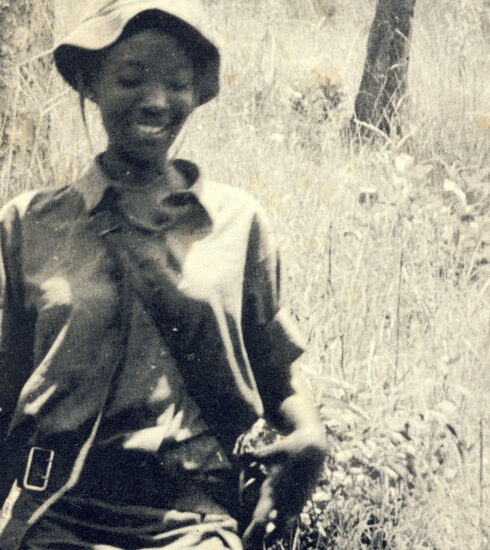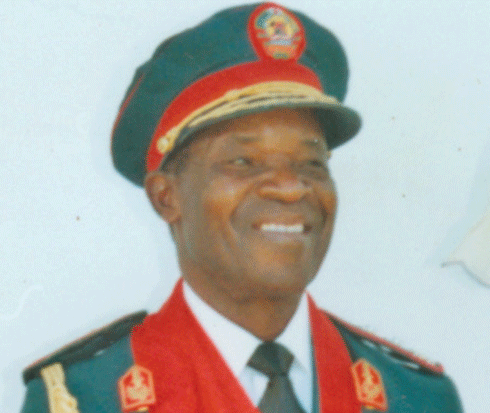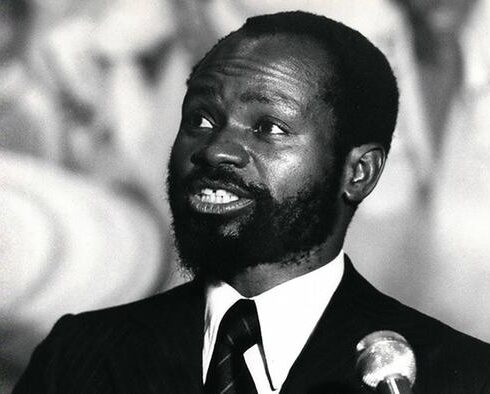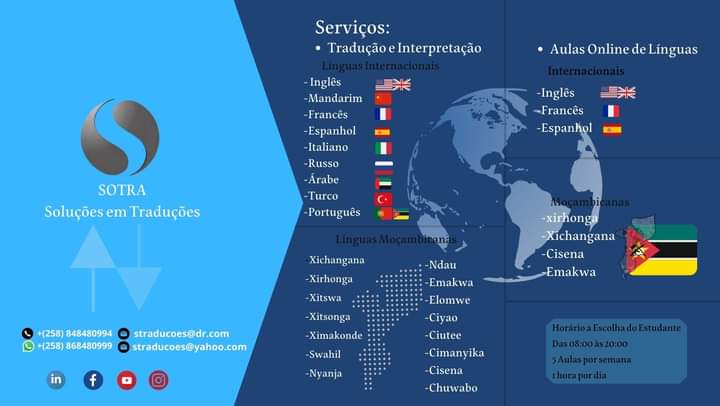
Josina Machel
Josina Machel (1945-1971) is a Mozambican heroine. She is considered icon of the emancipation of the woman in Mozambique. In fact, on April 7, 2011, the day after the 40th anniversary of her death, people, politicians and battle buddies in the National Liberation Struggle gathered in Chilembene, Gaza province, where tried to define her figure.
In that event, Zina, as she was affectionately called, was characterized as an example of exceptional and transcendental courage, uncommon among mortals.
Josina Abiatar Muthemba was born in the province of Inhambane, southern Mozambique, at dawn on August 10.
Her name is the fruit of the great friendship between her father, the nurse Abiatar Muthemba, and Dr. Josina de Lima Ribeiro, a physician at the then Hospital Miguel Bombarda, now Hospital Central de Maputo .
Zina began her studies at the Dom João de Castro School, in Mocímboa da Praia, in the north of Cabo Delgado, the district where her father had been transferred.
At home, her mother, Alfina Muthemba, sought to encourage her children to study. She leaded them compete to see who was the fastest in mathematical calculations and in the dictation of Portuguese. The winner received a dose of “lifetse”, a much-appreciated sweet in southern Mozambique.
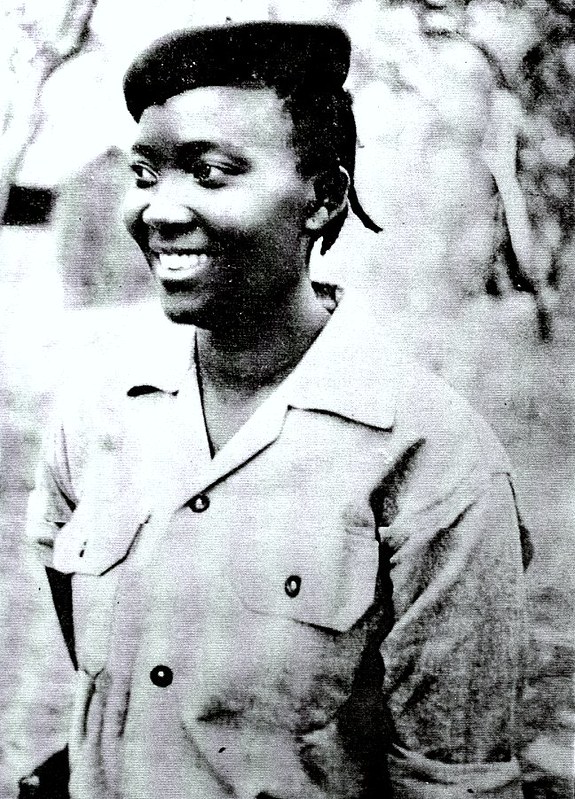
Later, Abiatar Muthemba was again transferred to Gaza province. And Zina had to complete elementary school at the Mouzinho de Albuquerque School, in Xai-Xai.
At the age of 13 years old, in the girl who liked to make two braids with a risk in the middle, the dream of wanting becomes an accountant and moved to the colonial capital, the city of Lourenço Marques (current Maputo city).
In Lourenço Marques, she intended to receive compensation classes, commonly explained, for the admission exam at the Commercial School (nowadays Commercial Institute of Maputo), located next to the Liceu Salazar (currently Josina Machel Secondary School).
The application exam was successfully completed, and after that, she finished the fifth year with the same joy. In the capital, Zina lived at the home of her maternal grandmother, Ana Macome, in the Chamanculo neighbourhood, a nursery of nationalism. It was there, where Josina was born, an interest in the cause of independence. It all happened when several elements of her family were arrested.

translated by SOTRA
It was in this context that in March 1964 Josina Muthemba, Armando Guebuza (at the time, President of the Students’ Nucleus of Mozambique), Ângelo Azarias Chichava, Milagre de Jesus Mazuze, Adelina Paindane, Cristina Tembe and Mariana Saraiva Mpfumo, decided to leave Mozambique to join the Mozambique Liberation Front (FRELIMO).
In order to escape the control of PIDE, the terrible secret police of the colonial regime, they had to leave in Mapai around 4:00 a.m. the train that they had come up to leave Mozambique.
Then they had to walk on foot more than 80 kilometers, from Mapai to the Frontier Village of Chicualacuala, defying fatigue, hunger and thirst.
Twenty-four hours after leaving the train, on the Rhodesian side, they continued to walk on foot uninterruptedly for more than 30 km until they resumed the train to Salisbury (nowadays Harare).
On that journey, they met two more Mozambicans, Simione Chivite and Amos Mahanjane who joined them on the same journey.
From Salisbury, the group that comprised Josina Muthemba, resumed the trip to Zambia. On the train, they were arrested by the Rhodesian police as they prepared to leave that country, and were imprisoned in Victory Falls.
Zina and her colleagues were later deported and handed over to PIDE. For about five months, they were systematically tortured.
Already in the cruel Vila Algarve, the headquarters of PIDE, Josina was interrogated several times. At the time, she was offered a scholarship to study in Portugal. However, the offer was declined.
Josina and her colleagues were later released and remained in supervised freedom. Despite the intimidation of PIDE, the dream of joining FRELIMO was resumed.
In April 1965, they again insisted on another escape, this time from Swaziland, where they stayed for a few months. They later managed to cross South Africa clandestinely and, in the British Bechuanaland protectorate, currently Botswana, were again arrested and threatened with deportation by the British authorities.
As a result of the intervention of Eduardo Mondlane, President of FRELIMO, demanding the unconditional release, the group was handed over to the United Nations High Commissioner for Refugees and taken to Zambia. Later she was sent to Tanzania, taken by Mariano Matsinha, then FRELIMO representative, in Zambia.

Hospital Josina Machel, em Angola
The group arrived in Tanzania in August 1965. Josina began working in the administration of the Mozambican Institute, being the right arm of Janet, the wife of Eduardo Mondlane.
Her qualities impressed Mondlane. In a short time of integration, Zina received from the president the important mission of organizing the political education of women’s unit in Niassa province, where the National Liberation Struggle was developing with particular intensity.
At the II FRELIMO Congress, which took place in 1968, Josina was elected delegate, through her position she defended the full inclusion of women in all aspects of the liberation struggle. Later, she assumed the position of the Women’s Section in the Department of Foreign Affairs.
The intention to embrace a hard and violent life was manifested when Eduardo Mondlane sent Mariana Pachinuapa to give a lecture at the FRELIMO School in Tanzania where she met Josina Muthemba who told her: “I want to go to Nachingweya to train.” And she had the answer: “No! Keep studying.”
Zina left sadly but did not give up. Proof of this is the letter sent asking to stop studying to go to train in Nachingweya. In the letter was a half-body picture, with the words: “With success in the revolution.”
In 1968, Mondlane gave Josina a scholarship to study in Switzerland. Zina refused and reaffirmed that she wanted to go to Nachingweya. And your request was eventually accepted.
The young woman was received, in Nachingweya, by Marina Pachinuapa, who took her to the training. The preparation began at 8:00 a.m. and ended at 7:00 p.m. without drinking water or eating. At the end of the training, Marina asked her: “Do you want this reality?” And Josina replied, “That’s right.”
This episode aroused the interest and attention of Samora Machel (one of the FRELIMO leaders, who later became the founder of the Mozambican state). In late 1968, Samora and Josina began dating.
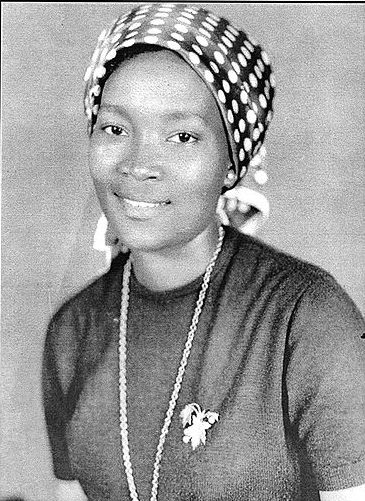
Josina Machel
Mondlane, upon receiving the news, advised Samora to marry quickly. Samora Machel and Josina Muthemba were married on May 4, 1969 at the Tunduro Educational Center in southern Tanzania and Zina adopted the name Josina Machel.
On November 23, of 1969, was born Samora Machel Júnior, known like Samito, first and only son of the guerrilla.
Josina returned to work as head of Social Affairs, with special responsibility for the well-being of war orphans, and for the health and education of all children in conflict zones in northern Mozambique, but her illness worsened.
In 1970, he traveled to the Soviet Union, where he sought a diagnosis for his chronic weakness, but without success.
That did not keep Josina away from work. The digressions to the liberated zones of the Niassa and Cabo Delgado were intensified, but the serious problem of the liver undermined its body. At 26, he was still fragile.
On March 6, 1971, Josina made her last trip to Cabo Delgado, where she was to learn about the situation of the children of FRELIMO nursery schools in that province.
However, Josina had a fever and faced difficulties in intervening with the population. Already on the border back to Dar-es-Salaam, Zina drew her pistol and said, “Hand it over to the comrade leader of the province to serve as the salvation of the Mozambican people.” He added, “Comrades, I am not going any further, but I’m worried about the revolution and the children.”
On April 6 her health deteriorated. On the night of that day she was unwillingly taken by Joaquim and Marcelina Chissano to the Muthimbili Hospital in Dar-es-Salaam, where she would end up losing her life at dawn on April 7, leaving a child with only 16 months.
The independence cause was to be won four years after his death. April 7 day is a holiday in Mozambique and is considered Mozambican Women’s Day, in honour of Josina’s feats. In Maputo, the former Liceu Salazar got its name, as well as a hospital in Luanda, the Angolan capital.







